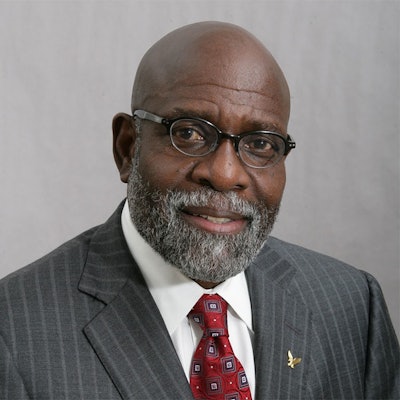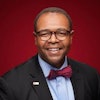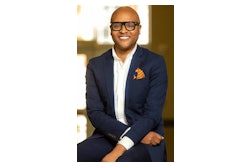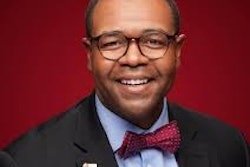Having spent more than a half-century as a faculty member, administrator, and advocate in higher education, I lost count a long time ago of the number of meetings I have attended, as well as the number of speeches and presentations I’ve made, all of which I gifted to the Indiana University Archives. But I recently attended a national event that is indelibly etched in the crevices of my memory. It was not a conference, but rather a summit: the United Negro College Fund (UNCF) Summit For Black Higher Education. This second annual summit, UNITE 2023, convened in Atlanta, Georgia, July 16-20, 2023, and was attended by 1,200 participants from more than 75 Black Colleges and Universities, more than 40 Black college presidents, and 50 corporate and nonprofit sponsors.
To be in the presence of so many Black college and university leaders, faculty-staff members, and trustees, just two weeks following the misguided Supreme Court decision outlawing the use of race in admitting undergraduate students at the University of North Carolina at Chapel Hill and Harvard University, served as a reminder of the contemporary importance of HBCUs. Dr. Charlie Nelms
Dr. Charlie Nelms
No matter how SCOTUS tried to spin the rationale for its decision, race still matters in America, is literally bad for our health, and has an outsized impact on all aspects of our lives, from birth to death, and even from generation to generation. Although the long-term impact of the Court’s decision is uncertain, we have the certainty of knowing that HBCUs are prepared to do what they have always done since their founding: to be engines of opportunity and social mobility where all students are welcome, irrespective of race, ethnicity, nationality, gender, or the financial status of their families.
Anchored by the five guiding pillars that serve as the foundation for HBCU transformation—Institutional Excellence, Student Success, Research and Innovation, Economic Mobility, and Systems Change—participants had access to more than 200 sessions, facilitated by thought leaders and speakers spanning the landscape of higher education and sectors beyond.
In the days since the UNCF summit, I have had the opportunity to reflect on why the event resonated so positively and profoundly with me. Even the most casual observer would have been struck by the elevated level of energy, enthusiasm and engagement manifested by those attending the summit. There are four things that set UNCF’s UNITE 2023 apart from countless other events in which I have been a participant, speaker, or observer since 1968.
First, the summit was planned and executed by UNCF employees spanning primarily two generations: millennials (born between 1981 and 1996), who are typically more progressive, creative and far-thinking; and those from Generation X (born between 1965 and 1980), who exhibit an elevated level of independence, flexibility, and a propensity toward technological adeptness.
The confluence of the skills and predilections of these two groups were on full display. As a member of the baby boomer generation, I will admit that not having a printed program and scanning bar codes required an adjustment! The millennials and the Xers are to be commended for successfully planning and delivering a program that optimized participant engagement, while minimizing speechmaking by a bevy of well compensated, professional speakers. Each session was long enough to be informative and promote discussion, but short enough not to lead to participant disengagement or boredom.
Second, HBCU transformation was infused in every plenary and breakout session, meal discussion, or bar conversation. All discussions proceeded from the perspective of HBCU assets, rather than deficits wrought by the cumulative effects of historic underfunding and its adverse impact on academic program development and implementation. In other words, participants chose not to squander their energy on anger and handwringing. Instead, the focus was on the future rather than the past!
Third, all summit participants were members of a team led by the president or another member of the HBCU C-suite. Teams were comprised of faculty and staff who are actively and earnestly engaged in the daily work of transforming their institutions, without any expectations of attention or accolades. These are people for whom the famous UNCF’s phrase, “A mind is a terrible thing to waste,” is deeply-held belief, rather than merely a marketing tagline.
Fourth, and most importantly, the UNCF summit was planned by us for us, and every session and every speaker reinforced the enduring values upon which HBCUs were founded—the uplift of Black students and the communities from which they come.
For those who question the long-term sustainability of HBCUs, I caution them not to bet against the sector! Despite recent increases in presidential turnover, the leadership bench is deeper and stronger than some would have us believe. The millennials and Generation X are leading in ways that many higher education observers and pundits alike are unaware. The most important thing HBCU alumni and allies can do is to support the transformation underway at these iconic institutions. The transformation of which I speak will be neither swift nor easy, but it is essential for HBCUs to thrive rather than simply survive. I invite the Diverse Issues readership to join us on our journey.
To the planners of UNCF UNITE 2023, my heartfelt gratitude for your commitment to Black higher education. In the face of those who would seek to divide and conquer, you unite us by demonstrating, in thought and action, that a mind is indeed a terrible thing to waste.
Dr. Charlie Nelms is a veteran higher education administrator and chancellor emeritus of North Carolina Central University.



















